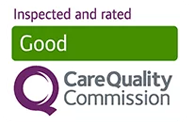Staying Safe & Well During Warm Weather

02/07/2025
Warm weather can be enjoyable and boost our mood but exposure to very hot weather for a prolonged period can present problems, especially for older people. Here are tips to stay safe and well when temperature rises.
Stay Hydrated
One of the most important steps during warm weather is to drink plenty of fluids. Heat causes the body to lose water through sweat, and dehydration can lead to headaches, dizziness, fatigue, and in severe cases, heatstroke. Aim to drink water regularly throughout the day, even if you don’t feel thirsty. Avoid excessive caffeine and alcohol, as these can contribute to dehydration.
Dress Appropriately
Wearing the right clothing can help your body stay cool. Choose lightweight, loose-fitting clothes made from breathable fabrics like cotton or linen. Light-coloured clothing reflects the sun’s rays better than dark colours, which absorb heat. A hat and sunglasses can also protect your face and eyes from direct sunlight. Make sure any sunglasses you wear have a CE mark and UV40 label.
Use Sun Protection
Apply sunscreen with a SPF of at least 30 to any exposed skin, even on cloudy days. Don’t miss any spots – it can be easy to forget bald patches, ears and hands! Seeking shade during the sun’s peak hours (usually between 11 a.m. and 3 p.m.) can also help reduce UV exposure.
Keep Your Environment Cool
When indoors try to keep rooms shaded and well-ventilated. Use fans or air conditioning if available. At night, use lighter bedding and keep windows open if it is safe to do so.
Adjust Your Activity Levels
During periods of extreme heat, it’s important to avoid strenuous physical activity, especially during the hottest part of the day. Try to schedule exercise or outdoor chores for early morning or late evening when it’s cooler. If you must be active during the day, take frequent breaks in the shade or indoors and drink plenty of water.
Check on Others
Hot weather can be especially problematic for vulnerable groups such as older people, young children, and people with chronic illnesses. Check in on neighbours, friends, and family members, particularly if they live alone. Make sure they have access to water, a cool environment, and know how to stay safe.
Recognise Signs of Heat-Related Illness
Heat exhaustion and heatstroke can be serious. Symptoms of heat exhaustion include heavy sweating, weakness, nausea, and fainting. Heatstroke, which is a medical emergency, may cause confusion, a rapid pulse, and a body temperature above 104°F (40°C). If you suspect someone is suffering from heatstroke, seek emergency help immediately.
Preparation and awareness are key to staying healthy in the heat; by following these guidelines, you can enjoy warm weather safely and reduce the risk of heat-related problems.

